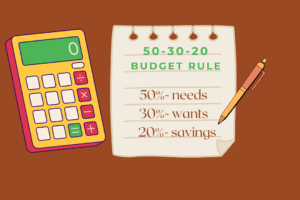A sound credit score is like a brilliant ticket in your financial life; it gets you way better intrigued rates, smoother credit endorsements, and indeed makes a difference with things like leasing a loft or getting a job. The great news? You don’t need to be a money-related virtuoso to boost your score. With a few savvy and basic steps, you can relentlessly thrust that number up.
Let’s investigate 7 clear methodologies that can help you improve your credit score without jumping into complicated fund jargon.
Never Miss a Payment (Genuinely, Never)
Imagine you’re loaning cash to a companion. Would you believe somebody who continuously pays late? Likely not. That’s how banks see late payments.
Why On-Time Installments Matter
Your installment history accounts for over one-third of your credit score, around 35%. That’s enormous. Indeed, a single late installment can remain on your report for seven a long time and truly mark your score.
Easy Fixes:
Set auto-payments on all your bills.
Use calendar updates a few days before some of the recently due dates.
If you’re running to stores, pay the least sum to dodge being checked late.
Being steady with your installments is the most straightforward way to demonstrate you’re dependable to lenders.
Keep Your Credit Card Equalizations Low
High credit card equalizations might not appear like a huge bargain if you’re paying the least, right? Well, credit bureaus think differently.
What’s Credit Utilization?
It’s the rate of your accessible credit you’re utilizing. Let’s say you have a $5,000 credit constraint and a $2,500 adjustment. That’s a 50% utilization rate—way too high.
Experts prescribe remaining below 30%. But to truly sparkle, point below 10%.
How to Lower Utilization:
Make installments twice a month to bring down equalizations quicker.
Ask for a credit constraint increase—but don’t utilize the additional credit!
Avoid maxing out any one card, indeed, if you have multiple.
Low utilization tells banks you’re in control of your spending.
Screen Your Credit Report Like a Hawk

Your credit report is like your budgetary report card. But what if it has botches? Mistakes are more common than you think—and they can be costing you points.
What to See For:
Wrong account balances
Closed accounts stamped as open
Late installments that you know were on time
Accounts you don’t recognize (may be character theft!)
If you spot an error, report it instantly to the credit bureau. They legitimately have 30 days to explore and rectify it.
Keep Ancient Accounts Open
Here’s something that might shock you: closing ancient credit cards can harm your credit score.
Why?
Credit scoring models favor individuals with long credit histories. Closing an ancient account can shorten your credit history and decrease your available credit, are undesirable outcomes.
What You Should Do:
If you have an ancient card, keep it open, indeed, if you seldom utilize it.
Use it for a little membership like Spotify or an exercise center membership.
Think of ancient credit cards like fine wine—the more seasoned, the better.
Be Cautious with Unused Credit Applications
It might be enticing to snatch each store credit card that offers 10% off your purchase, but each unused credit application makes a difficult request on your report.
Why That’s a Problem:
Too many difficult requests in a brief period can make you feel unsafe. It can moreover shave 5–10 focuses off your score with each application.
Best Practices:
Only apply for credit when needed.
Space out applications—at slightest six months apart.
Use delicate request devices (like pre-qualification) when investigating offers.
Credit checks may appear minor, but they can add up fast.
Gotten to be an Authorized Client (A Easy route That Works)
This one feels nearly as great to be true, but it works.
Here’s the Deal:
If somebody you believe has a credit card in great standing (moo adjust, on-time installments), they can include you as an authorized client. Their positive installment history begins to reflect on your report.
Why It’s Awesome:
You benefit from their credit habits.
It’s an awesome methodology for newcomers or those recovering from terrible credit.
Just make sure beyond a doubt that the individual, including you, is fiscally capable. If they mess up, it can harm your score too.
Blend It: Diversify Your Credit Types
Your credit mix, meaning the sorts of credit accounts you have, makes up around 10% of your score. Loan specialists like to see that you can handle diverse sorts of debt.
Types of Credit:
Revolving credit: Credit cards
Installment credits: Car credits, student loans, contracts, and individual loans
How to Progress Your Mix:
If you, as it were, have cards, consider a little individual loan.
New to credit? A secured credit card can offer assistance in constructing a base.
Don’t go overboard—quality over quantity.
A great blend signals to moneylenders that you’re adaptable and responsible.
Conclusion
Improving your credit score doesn’t require a master’s degree in finance. It’s about building great propensities and remaining steady. Pay on time. Keep your equalizations moo. Observe your reports. Don’t near ancient cards. Maintain a strategic distance from applying as well as regularly. Ended up as an authorized client. Blend it up.
If you begin taking these steps nowadays, your credit score will start to move in the right direction—slowly but surely.
Just like building muscle or learning a new ability, it takes time. But with each keen move, you’re building a more grounded financial future.
FAQs
Can my credit score go up in one month?
Yes, particularly if you pay down expensive credit card balances or expel a negative blunder from your report. A few individuals see changes in 30 days or less.
Is it awful to have different credit cards?
Not essentially. Having several cards can help your credit utilization. Fair doesn’t carry tall equalizations, and continuously pays on time.
How long do bad marks remain on my report?
Most negative data (like late installments) remains on your report for 7 a long time, whereas liquidations can wait for up to 10 years.
Does checking my credit score lower it?
No! That’s a delicate request and has no effect. It’s shrewd to check your score frequently to track your progress.
What’s a good credit score to aim for?
Anything over 700 is, for the most part, considered great. 750+ is amazing. But don’t obsess—just center on making strides relentlessly.



